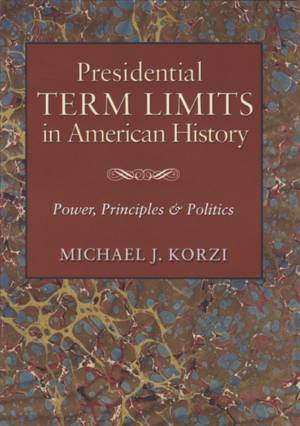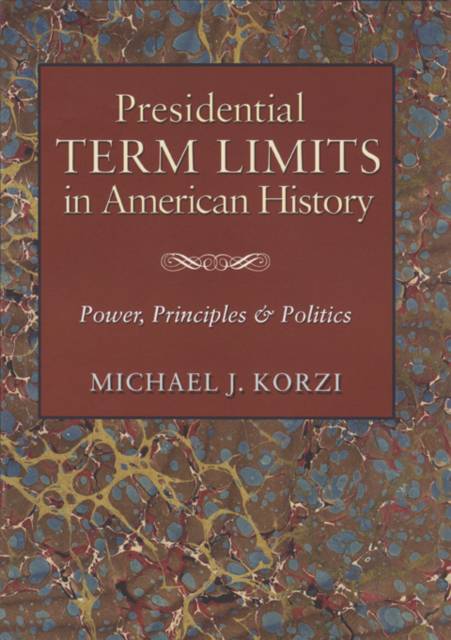
- Afhalen na 1 uur in een winkel met voorraad
- Gratis thuislevering in België vanaf € 30
- Ruim aanbod met 7 miljoen producten
- Afhalen na 1 uur in een winkel met voorraad
- Gratis thuislevering in België vanaf € 30
- Ruim aanbod met 7 miljoen producten
Zoeken
€ 33,45
+ 66 punten
Omschrijving
An innovative historical study of the longstanding debate over executive term limits in American politics . . . By successfully seeking a third term in 1940, Franklin D. Roosevelt shattered a tradition that was as old as the American republic. The longstanding yet controversial two-term tradition reflected serious tensions in American political values. In Presidential Term Limits in American History, Michael J. Korzi recounts the history of the two-term tradition as well as the "perfect storm" that enabled Roosevelt to break with that tradition. He also shows that Roosevelt and his close supporters made critical errors of judgment in 1943-44, particularly in seeking a fourth term against long odds that the ill president would survive it. Korzi's analysis offers a strong challenge to Roosevelt biographers who have generally whitewashed this aspect of his presidency and decision making. The case of Roosevelt points to both the drawbacks and the benefits of presidential term limits. Furthermore, Korzi's extended consideration of the seldom-studied Twenty-second Amendment and its passage reveals not only vindictive and political motivations (it was unanimously supported by Republicans), but also a sincere distrust of executive power that dates back to America's colonial and constitutional periods. " . . . a competent book that will make an important contribution to presidential studies. It will quickly become the cited authority on the topic of presidential tenure."-David A. Crockett, author, Running against the Grain: How Opposition Presidents Win the White House and The Opposition Presidency: Leadership and the Constraints of History MICHAEL J. KORZI's articles have appeared in Presidential Studies Quarterly, Polity, and Congress and the Presidency. He is a professor of political science at Towson University in Towson, Maryland.
Specificaties
Betrokkenen
- Auteur(s):
- Uitgeverij:
Inhoud
- Aantal bladzijden:
- 192
- Taal:
- Engels
- Reeks:
Eigenschappen
- Productcode (EAN):
- 9781603449915
- Verschijningsdatum:
- 1/02/2013
- Uitvoering:
- Paperback
- Formaat:
- Trade paperback (VS)
- Afmetingen:
- 152 mm x 229 mm
- Gewicht:
- 349 g

Alleen bij Standaard Boekhandel
+ 66 punten op je klantenkaart van Standaard Boekhandel
Beoordelingen
We publiceren alleen reviews die voldoen aan de voorwaarden voor reviews. Bekijk onze voorwaarden voor reviews.








